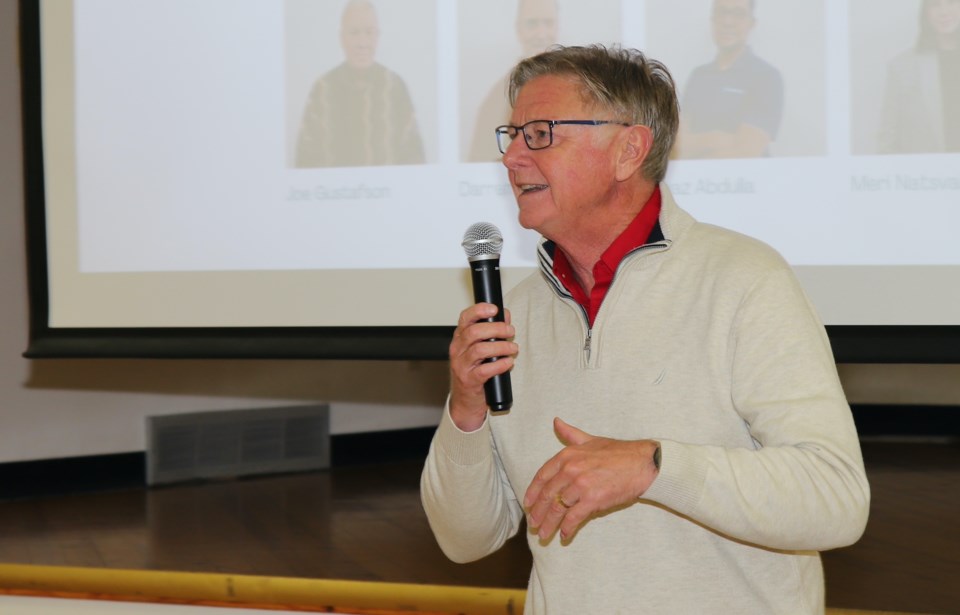Artificial intelligence (AI) is the future of health care, and Alberta is well-positioned to take advantage of that, says former Alberta Health Services chair Dr. Lyle Oberg.
Oberh was speaking at a brunch organized by the Olds Health Care Fundraising Committee (OHCFC) Oct. 6.
“It used to be that we would have to go through and write our Excel charts and flip the pages and do all that. We don't have to do that anymore,” he said.
“AI can do that in two weeks. It can go through two million charts in two weeks and give you that answer.
“And that's going to be the future of health care to come. It's going to be data.”
He said Alberta is “positioned very, very, very well” for that because it has a very comprehensive data base.
Oberg would like to see the Health Information Act, which protects the privacy of patients’ information, loosened.
“We have probably the most advanced health-care record, health-care information system in the world,” Oberg said.
However, he described the act as “very limiting.”
Oberg said when the act was brought in 20 or 25 years ago, it had the very laudable goal of ensuring a patient’s privacy. But on the other hand, he said information contained in those records could help cure others.
Oberg paraphrased a quote he said he’d heard elsewhere: ‘it is immoral for us not to use the information that we have.’
“I agree completely with that,” he said.
“I was there when the Health Information Act was put in and was put in with all the right ideas,” he said. “It was good act.
“But what we didn't anticipate is we didn't anticipate artificial intelligence 25 years ago, or 20 years ago.
“Enabling acts like the HIA became interpreted by lawyers in a certain way to protect the privacy with the overwhelming protection of privacy.
“I understand that, but we still have to use that data. We have to be able to use that data to make your life better, to make your kids’ life better, to make your grandkids’ life better. And that's critically important to us.”
Oberg said in his own case, if his health data gets out but helps improve the life of someone else, he’s OK with that.
He said other countries in the world are doing a good job of walking that fine line. He cited Denmark as an example.
“Denmark's doing a great job,” Oberg said. “They have an opt-out system where it says if you don't want your data used, you can opt out of it. And interestingly, I think 95 per cent of people opt in, they don't opt out.”



